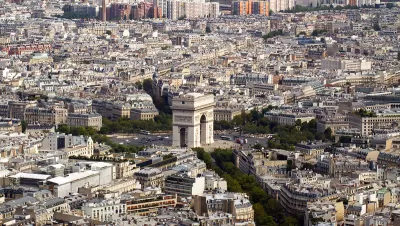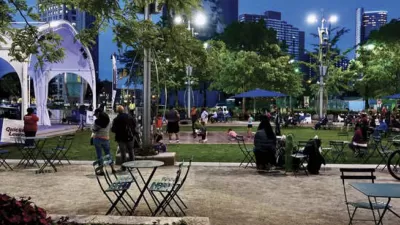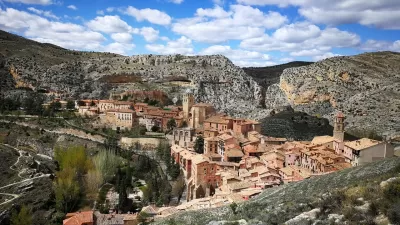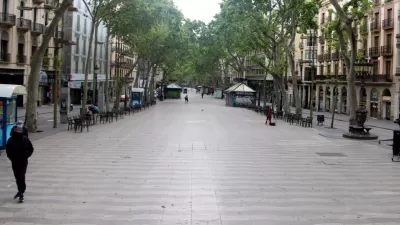Raising the bar on the 20-minute neighborhood model, cities around the world are embracing the appeal of the 15-minute city during the coronavirus pandemic.

Feargus O'Sullivan and Laura Bliss relate a picturesque rendering of Paris, describing the transformation in parts of the city from a car-reliant spiral of streets into a series of self-sustainable communities dedicated to the people rather than cars.
The Minimes barracks, the renovation of the Place de la Bastille, and the now-permanent "coronapiste" bike thoroughfare represent a shift toward "a potentially transformative vision for urban planners: the 15-minute city," as O'Sullivan and Bliss insist, describing an interconnected web of numerous walkable hubs within a city as "replicated, like fractals, across an entire urban expanse."
The authors' article presents the hiring of "proximity city" officials under Mayor Anne Hidalgo's leadership, most notably, Professor Carlos Moreno's rise to the position of "kind of deputy philosopher" of the 15-minute city and the appointment of Carine Rolland as Commissioner for the 15-minute city. O'Sullivan and Bliss show that Paris has doubled down on planning and implementation for a city in which residents have everything they need in close proximity. European centers from London to Barcelona to Milan have also embraced the proximity approach.
"But turning the 15-minute city into a truly global movement will require a big battle over a core urban tension: the primacy of the car," remind O'Sullivan and Bliss.
In the particularly car-reliant city of Detroit (appropriately deemed Motor City) Mayor Mike Duggan's 2016 plan to improve walkability and proximity to essential services under the 20-minute rubric has so far been a modest success. The walkability and bikeability of Portland have also been "celebrated in urbanist circles as a model of U.S. city planning," O'Sullivan and Bliss say.
"Following the unending traumas of 2020, there’s an appealing nostalgia to a renewed emphasis on neighborhoods, even if it addresses only some of the city’s modern challenges," write the pair.
FULL STORY: The 15-Minute City—No Cars Required—Is Urban Planning’s New Utopia

Montreal Mall to Become 6,000 Housing Units
Place Versailles will be transformed into a mixed-use complex over the next 25 years.

Planetizen Federal Action Tracker
A weekly monitor of how Trump’s orders and actions are impacting planners and planning in America.

DARTSpace Platform Streamlines Dallas TOD Application Process
The Dallas transit agency hopes a shorter permitting timeline will boost transit-oriented development around rail stations.

Study: 4% of Truckers Lack a Valid Commercial License
Over 56% of inspected trucks had other violations.

Chicago Judge Orders Thousands of Accessible Ped Signals
Only 3% of the city's crossing signals are currently accessible to blind pedestrians.

Philadelphia Swaps Car Lanes for Bikeways in Unanimous Vote
The project will transform one of the handful of streets responsible for 80% of the city’s major crashes.
Urban Design for Planners 1: Software Tools
This six-course series explores essential urban design concepts using open source software and equips planners with the tools they need to participate fully in the urban design process.
Planning for Universal Design
Learn the tools for implementing Universal Design in planning regulations.
City of Mt Shasta
City of Camden Redevelopment Agency
City of Astoria
Transportation Research & Education Center (TREC) at Portland State University
US High Speed Rail Association
City of Camden Redevelopment Agency
Municipality of Princeton (NJ)





























